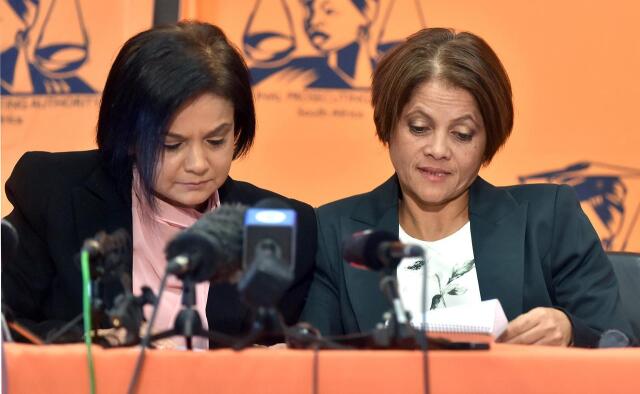The ID was set up to investigate corruption, fraud and theft in large part in a bid to ensure that the culprits of the state capture scandal that has shaken the country for several years are brought to book.
NATIONAL Director of Public Prosecutions (NDPP) Shamila Batohi is scheduled to brief the media on significant matters affecting the National Prosecuting Authority (NPA).
The planned briefing follows the unexpected resignation of the head of the NPA’s Investigative Directorate (ID), Hermione Cronje, who was appointed by President Cyril Ramaphosa more than two years ago.
Her appointment was for five years and was due to end in 2024.
The National Assembly’s portfolio committee on justice and correctional services has called on Batohi and Justice and Correctional Services Minister Ronald Lamola to provide details on Cronje’s resignation.
”We are concerned … if there are plans in place to ensure there is no disruption and what necessitated the resignation. It will be important as Parliament, as institutions accounting to us, that we are assured that there is no disruption,” said committee chairperson Bulelani Magwanishe, who also confirmed that there was a meeting scheduled for Wednesday.
Deputy National Director of Public Prosecutions Ouma Rabaji-Rasethaba will assist Cronje in the period until her departure in March.
The ID was set up to investigate corruption, fraud and theft in large part in a bid to ensure that the culprits of the state capture scandal that has shaken the country for several years are brought to book.
It also attends to statutory offences including but not limited to contraventions of the Prevention and Combating of Corrupt Activities Act, the Prevention of Organised Crime Act, the Protection of Constitutional Democracy against Terrorist and Related Activities Act, the Public Finance Management Act, the Municipal Finance Management Act and the Financial Intelligence Centre Act as well as any other statutory offence involving dishonesty.
Additionally, the ID investigates any unlawful activities relating to serious, high-profile or complex corruption including but not limited to offences or criminal or unlawful activities arising from current commissions and inquiries.
– Political Bureau








